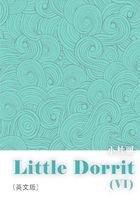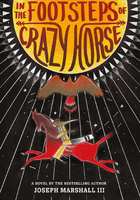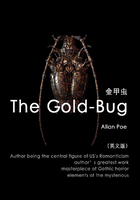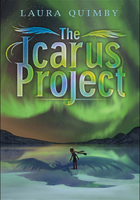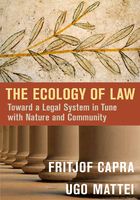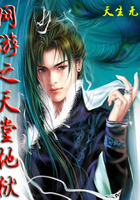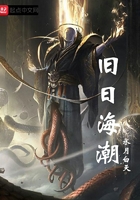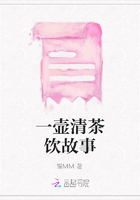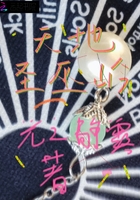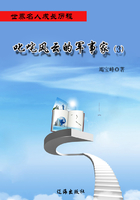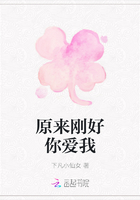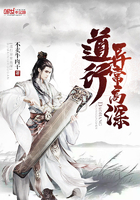On 20 February 1895, four weeks after his father's death, Churchill entered the cavalry, being gazetted a Second Lieutenant with the 4th Hussars, then stationed at Aldershot. His commission was made out, according to custom, from Queen Victoria to 'Our Trusty and well beloved Winston Leonard Spencer Churchill, Gentleman', and was signed by the Secretary of State for War, Campbell-Bannerman, who less than eleven years later was to give Churchill his first Ministerial office, as Under-Secretary of State for the Colonies.
The routine at Aldershot was not severe; it began at 7.45, Churchill wrote to his brother during his first week there, with 'Breakfast in bed'. For one hour a day he was in charge of a squad of thirty men 'and have to see the horses groomed, watered, fed & the men's rooms clean etc'. There was also two hours' riding school each morning, and a drill in the afternoon 'mostly spent in drilling the men myself'. This was followed by 'hot baths', dinner, billiards and bezique. 'I play a great deal of whist in the evenings,' he told his mother a few days later. He had also been to London, where his aunt, Duchess Lily, had agreed to pay for his horse.
After Churchill had been only two weeks at Aldershot, the electors of the Barnesbury constituency asked the twenty-year-old subaltern to address them. It was his first invitation to give a political speech, 'but after much communing with myself,' he told his brother, 'I wrote them that the honour was too great-or words to that effect.'
Accidents still beset the young man; in March he wrote to his mother: 'I have had the misfortune to smash myself up while trying a horse on the steeplechase course. The animal refused and swerved-I tried to cram him in-and he took the wings. Very nearly did I break my leg-but as it is I am only bruised and stiff.' He had struck his knee a 'resounding blow', he told Jack, 'but am now better and can hobble about on sticks'.
Having assured his mother that he would not take any further risks by steeplechasing, Churchill entered a Cavalry Brigade steeplechase under the name 'Mr Spencer'. The race in which he rode was the 4th Hussars Subalterns' Challenge Cup. 'It was very exciting and there is no doubt about it being dangerous,' he told Jack. 'I had never jumped a regulation fence before and they are pretty big things as you know.' His horse came third. Later there was a scandal when it emerged that the winner might not have been the horse it was stated to be; the race was declared null and void and all the horses which had taken part in it, including the one Churchill had ridden, were perpetually disqualified from further racing. All five subalterns were under suspicion of having participated in the deception, which, a year later, was violently denounced in the radical magazine Truth.
There was another unfortunate episode that spring, only three weeks after the steeplechase affair. A recently commissioned officer, Alan Bruce, who was about to join the 4th Hussars, and had been at Sandhurst with Churchill, was so unpopular with his fellow subalterns that, at a dinner to which five of them, including Churchill, specially invited him, he was told that he ought to leave the regiment. A year later this episode was also denounced in Truth, which called it a 'gross cavalry scandal'. According to the editor, the Radical MP Henry Labouchere, it was Churchill who, 'acting apparently as spokesman of the junior officers of the regiment', had informed Bruce he was 'not wanted'. Not long afterwards Bruce was asked officially to leave, and did so.
In two of his letters to his mother Churchill referred to this aspect of Army life, though not to his own involvement. 'When I see how some fellows who are disliked are treated,' he wrote that April, 'I feel very thankful I have been so fortunate as to make my own friends and generally find my footing.' Three months later he told her, 'If you aren't liked you have to go & that means going through life with an unpleasant stigma.'
At the end of April, Churchill was in London for the wedding of his widowed aunt, Duchess Lily, to Lord William Beresford. 'A most excellent breakfast which must have cost a great deal,' he wrote to his mother, 'and crowds to eat it, were the chief feature.' From London he went to the races at Newmarket, where the Prince of Wales had spoken to him. 'The whole world' had been in the stand, 'all most civil & agreeable'. Polo, too, was now at the forefront of his interests. 'It is the finest game in the world,' he wrote to his mother at the end of May, 'and I should almost be content to give up any ambition to play it well and often. But that will no doubt cease to be my view in a short time.'
In June, Churchill's friend Polly Hacket married Edward Wilson. Churchill had already befriended Wilson's sister Muriel, who was his guest at Aldershot for the Queen's Birthday Parade. That month he joined the Bachelors' Club in London. 'I have had a great many invitations,' he told his mother, '& could go to a ball every night did I wish to-but field days & drills make me more eager for bed than anything else.' That June, Nasrulla Khan, son of the Emir of Afghanistan, visited England; when he inspected the troops at Aldershot, Churchill was chosen to be part of the escort of the Duke of Connaught. 'I was seven hours on horseback without dismounting or taking off my busby,' he told his mother, '& two more hours after lunch-but it was a great honour to have been selected.'
***
In the early evening of July 2 Churchill received a telegram at Aldershot announcing that Mrs Everest's condition was 'critical'. He set off at once for her house at 15 Crouch Hill, in North London. 'She knew she was in danger,' he later recalled, 'but her only anxiety was for me. There had been a heavy shower of rain. My jacket was wet. When she felt it with her hands she was greatly alarmed for fear I should catch cold. The jacket had to be taken off and thoroughly dried before she was calm again.'
From North London, Churchill hurried to the centre of town to engage a nurse and to see Dr Keith, who agreed at once to go to Mrs Everest's bedside. Churchill then took the midnight train back to Aldershot so as not to miss the early morning parade. As soon as the parade was over he returned to London, to Mrs Everest's side. But despite hopes that she might rally 'she only sank into a stupor,' Churchill told his mother, 'which gave place to death at 2.15 this morning'. The nurse had arrived only for the end. 'It was very sad & her death was shocking to see-but I do not think she suffered much pain.'
It was still early morning; Churchill took the train from London to Harrow to tell Jack the news, wanting to spare him the anguish of a telegram. 'He was awfully shocked,' Churchill told his mother, 'but tried not to show it.' Returning to London he made the necessary arrangements for Mrs Everest's funeral. He also ordered a wreath in his mother's name, as 'I thought you would like to send one'. As to Mrs Everest, he told her, 'I shall never know such a friend again.'
Mrs Everest was buried at the City of London Cemetery in East London on July 5. 'The coffin was covered in wreaths,' Churchill wrote to his mother that night, '& everything was as it should be.' The funeral over, he returned to Aldershot. 'Well my dearest Mummy,' he wrote that evening, 'I am very tired as I have been knocking about for two nights & have done all my duty here at the same time. I feel very low-and find that I never realized how much poor old Woom was to me.' Later he arranged for a stone to be put on her grave; the inscription states that it had been erected 'by Winston Spencer Churchill and John Spencer Churchill'.
'I felt very despondent and sad,' Churchill told his mother. 'It is indeed another link with the past gone, & I look back with regret to the old days at Connaught Place when fortune still smiled.' Lady Randolph did not even have a home of her own now; she was living in hotels and with relatives. 'I am longing for the day when you will be able to have a little house of your own,' Churchill wrote, 'and when I can really feel that there is such a place as home.' For him, Aldershot was home. 'I have a great many friends,' he told his mother, '& I know my ground.' There was much to do and see. On July 23 the Duke and Duchess of York, later King George V and Queen Mary, were present at the field day '& I was asked to meet them at dinner'. He also had 'quite a long talk with the Duke of Connaught about the Election'.
It was the first General Election for nearly thirty years in which Gladstone was not the Liberal leader. 'For my part,' Churchill told his mother at the height of the campaign, 'I attribute the ruin of the radical party entirely to the absence of Mr Gladstone's sustaining power. Ever since '86 when the great split took place they have steadily declined-but his personality imparted to them a fictitious strength-just as fever animates a sick man. As soon as this departed the collapse ensued.'
Rosebery and the Liberals were defeated, and Salisbury became Prime Minister, at the head of a Conservative and Unionist administration. Leading places were given to Joseph Chamberlain and other Liberal stalwarts of a decade earlier. As to the defeated Gladstonian Liberals, 'a more disappointed & broken down party was never seen', Churchill told his mother. The Unionists, by contrast, 'come in with nearly every able man in both Houses in their Cabinet-with the House of Commons at their feet-& the Lords at their back-supported by all sections of the nation-unfettered by promises or hampered by pledges'. No Party had ever had 'such a chance'; it remained to be seen 'what use they will make of it'. But he ended his letter with a warning about the new Government's staying power: 'To my mind they are too strong-too brilliant altogether. They are just the sort of Government to split on the question of Protection. Like a huge ship with powerful engines they will require careful steering-because any collision means destruction.'
Protection, the Unionist demand for a tariff system to protect Imperial trade against foreign competition, was indeed to split the Party and bring it down. In this future political convulsion, Churchill, then a young Conservative MP, was to achieve political prominence as a leading opponent of tariffs.
At Aldershot, Churchill's life was still dominated by riding. 'We are now in the midst of manoeuvres,' he wrote to his mother that August. 'Eight hours in the saddle every day-then two hours stables and then to polo indefatigably.' And yet, he told her, politics already lured him: 'It is a fine game to play-the game of politics, and it is well worth waiting for a good hand-before really plunging. At any rate, four years of healthy and pleasant existence, combined with both responsibility & discipline, can do no harm to me-but rather good.' The more he saw of soldiering, 'the more I like it-but the more I feel convinced that it is not my metier. Well, we shall see.'
A week later Churchill told his mother that Army life was leading to a state of mental stagnation 'quite in accordance' with the spirit of the Army. 'From this "slough of Despond" I try to raise myself by reading & re-reading Papa's speeches-many of which I almost know by heart.' If he were to be quartered in London he was thinking of taking a tutor for one or two hours a week to study Economics or Modern History: 'I need someone to point out some specific subject & to direct my reading in that subject. The desultory reading I have so far indulged in has only resulted in a jumble of disconnected & ill-assorted facts.'
Lady Randolph, who did not entirely understand what her son had in mind, suggested he should make a study of the 'supply of army horses'. This, he replied, was a subject which, while having much to commend it to a cavalry officer, was 'more calculated to narrow and groove one's mind than to expand it'. Something 'more literary and less material would be the sort of mental medicine I need'. All his life, he explained, first at Harrow, then at Sandhurst and finally at James's, he had received a 'purely technical' education aimed at passing some approaching examination. 'As a result my mind has never received that polish which for instance Oxford or Cambridge gives. At these places one studies questions and sciences with a rather higher object than mere practical utility. One receives in fact a liberal education.'
Three months before his twenty-first birthday Churchill embarked upon a self-taught course of just such a liberal education. Although he was a cavalry officer with plenty of duties and riding commitments, and pleasures, he became a private undergraduate at his own university. The first of his teachers was Fawcett's Manual of Political Economy, published thirty years earlier. It was a book, he told his mother, 'essentially devoted to "first principles"-and one which would leave at least a clear knowledge of the framework of the subject behind-and would be of use even if the subject were not persevered in'. After Fawcett, he planned to read Gibbon's Decline and Fall of the Roman Empire and Lecky's European Morals from Augustus to Charlemagne. 'These will be tasks more agreeable than the mere piling up of shoppy statistics.'
In the autumn of 1895 Lady Randolph acquired a London house, 35a Great Cumberland Place. If he were to be stationed nearer the capital, Churchill wrote to his mother, 'I could live with you at 35 and soldier on a season ticket.' His letter continued: 'I do so look forward to having a house once more. It will be too delightful to ring the door bell of one's own front door again. Poor old Everest-how she would have loved to see us ensconced in a house again. She looked forward to it so much.'
***
In October 1895 Churchill decided to go with a friend, Reginald Barnes, to Cuba, where Spanish forces were trying to crush a rebellion of the islanders. To his mother, who was hesitant about his journey, he wrote, 'The fact is that I have decided to go.' Lady Randolph replied at once: 'Considering that I provide the funds, I think that instead of saying "I have decided to go" it may have been nicer & perhaps wiser to have begun by consulting me.' She would not put any obstacle in his way, 'But I suppose experience of life will in time teach you that tact is a very essential ingredient in all things.'
While preparing for the journey, Churchill went to see Field Marshal Lord Wolseley, Commander-in-Chief of the British Army. With Wolseley's approval he and Barnes saw the Director of Military Intelligence, General Chapman, who gave them maps and information. For their part, Churchill told his mother, they had been asked to collect information and statistics on various points, '& particularly as to the effect of the new bullet-its penetration and striking power'. This request, he added, 'invests our mission with an almost official character & cannot fail to help one in the future'. There was also a less official side to the journey. 'I shall bring back a great many Havana cigars,' he told his mother, 'some of which can be "laid down" in the cellars of 35 Great Cumberland Place.' Before leaving he persuaded the Daily Graphic, for which his father had written while in South Africa, to let him send regular reports from the scene of the insurrection.
Churchill left England a month before his twenty-first birthday, on board the Cunard Royal Mail Steamship Etruria. It was his first transatlantic crossing. Proudly he told his mother that he and Barnes were never seasick and never missed a meal. But, he added, 'I do not contemplate ever taking a sea voyage for pleasure & I shall always look upon journeys by sea as necessary evils, which have to be undergone in the carrying out of any definite plan.' The shipboard concert, he wrote, was the occasion when 'all the stupid people among the passengers intend to perform and the stupider ones to applaud'.
New York was a delight to Churchill. 'Everybody is very civil and we have engagements for every meal for the next few days about three deep,' he told his mother. Her own cousins were all most helpful and friendly; one of them had engaged 'an excellent valet' for the two travellers. They visited the American Army headquarters of the Atlantic Military District, and also West Point, the Sandhurst of the United States. The young Sandhurst graduate was horrified by the discipline at West Point. 'They are not allowed to smoke or have any money in their possession,' he told his brother, 'nor are they given any leave except two months after the first two years.' This was a 'positively disgraceful' state of affairs. 'Young men of 24 or 25 who would resign their personal liberty to such an extent can never make good citizens or fine soldiers. A child who rebels against that sort of control should be whipped-so should a man who does not rebel.'
While in New York, Churchill visited an American warship, the cruiser New York. The American sailors interested him more than the ship itself, 'for while any nation can build a battleship, it is the monopoly of the Anglo-Saxon race to breed good seamen', he wrote to his Aunt Leonie. 'What an extraordinary people the Americans are!' he exclaimed to his mother. 'Their hospitality is a revelation to me and they make you feel at home and at ease in a way that I have never before experienced.' On the other hand, he wrote, 'their press and their currency impress me very unfavourably'. The paper dollar with which he paid his fare across Brooklyn Bridge was possibly 'the most disreputable "coin" the world has ever seen', he told Leonie; he had reflected for some time on 'how to reconcile the magnificent system of communication with the abominable currency'. Paper money was a shock to him until he found the solution, 'The communication of New York is due to private enterprise while the State is responsible for the currency: and hence I come to the conclusion that the first class men of America are in the counting houses and the less brilliant ones in the government.'
'This is a very great country my dear Jack,' Churchill wrote to his brother on his fifth day in New York. 'Not pretty or romantic but great and utilitarian, there seems to be no such thing as reverence for tradition. Everything is eminently practical and things are judged from a matter of fact standpoint.' In a courtroom to which he had been invited to sit on the bench, the judge had been discussing the evidence with Churchill 'as it was given' and 'generally making himself socially agreeable-& all the while a pale miserable man was fighting for his life'. There had been 'no robes or wigs or uniformed ushers. Nothing but a lot of men in black coats & tweed suits. Judge, prisoner, jury, counsel & warders all indiscriminately mixed. But they manage to hang a man all the same, and that after all is the great thing.'
There was much to stimulate Churchill during his short visit; the essence of American journalism, he told his brother, was 'vulgarity divested of truth', but he did not wish to be over-censorious: 'I think, mind you, that vulgarity is a sign of strength. A great, crude, strong, young people are the Americans-like a boisterous healthy boy among enervated but well bred ladies and gentlemen.' Enthusiastically he concluded, 'Picture to yourself the American people as a great lusty youth-who treads on all your sensibilities, perpetrates every possible horror of ill manners-whom neither age nor just tradition inspire with reverence-but who moves about his affairs with a good hearted freshness which may well be the envy of older nations of the earth.'
After a week in New York, Churchill and Barnes went by train to Florida. Their New York host, Bourke Cockran, in whose apartment they had stayed, obtained a private room for them in the train. As a result, their thirty-six-hour journey south was not 'as unpleasant', Churchill told his mother, 'as if we had had to travel in a regular compartment'. At Key West they took ship to Havana, where the British Consul-General introduced them to the Spanish Military Governor, who in turn telegraphed to the Spanish Commander-in-Chief that they had arrived.
On November 21 Churchill and Barnes left Havana by train to join the Spanish troops in the field. 'Our luck has been almost uncanny,' Churchill told his mother. 'We missed two trains that were both smashed up by the rebels by about half an hour. We went into a town in which every sort of dreadful disease was spreading, and finally, if without any particular reason I had not changed my position about one yard to the right, I should infallibly have been shot.' Added to all this 'I left a fiver to be put on "The Rush" at 8 to 1 and it simply romped home. So you see my dear Mamma-there is a sweet little cherub.'
Churchill's five despatches to the Daily Graphic were headed 'Letters from the Front' and signed with the initials 'WSC'. There was no doubt, he wrote in the first letter, written while he was still on the way to the front, that the Cuban insurgents 'possess the sympathy of the entire population, and hence have constant and accurate intelligence. On the other hand Spain is equally determined to crush them, and is even now pouring in fresh troops by the thousand. How it will end it is impossible to say, but whoever wins, and whatever may be the results, the suffering and misery of the entire community are certain.'
On November 23 Churchill reached the centre of the island. 'The more I see of Cuba,' he wrote that day, 'the more I feel sure that the demand for independence is national and unanimous. The insurgent forces contain the best blood in the island, and can by no perversion of the truth be classed as banditti. In fact, it is a war, not a rebellion.' On the following day a military column of about 2,700 men was formed by General Valdez to escort supplies through the mountains to the various Spanish garrisons. 'The General gave us horses and servants,' Churchill told his mother when he was back in Havana two weeks later, 'and we lived with his personal staff.'
November 30 was Churchill's twenty-first birthday. That day General Valdez led his force in search of the main rebel army. Churchill and Barnes went with him, camping that night in the open. On the following day, after marching to a new camp, the two Englishmen persuaded two Spanish officers 'to come with us and bathe in the river'. Their swim over, the four men were dressing on the bank when 'suddenly', as Churchill reported in his next despatch, 'we heard a shot fired. Another and another followed; then came a volley. The bullets whistled over our heads. It was evident that an attack of some sort was in progress.' Quickly dressing, one of the Spanish officers ran to collect fifty men, who drove off the attackers.
Churchill and Barnes returned to Valdez's headquarters half a mile away, where a larger skirmish was taking place. It too was repulsed. Then, just before midnight, Churchill reported, 'they came back and fired at us for about an hour'. Several Spanish soldiers were killed. 'One bullet came through the thatch of the hut in which we were sleeping and another wounded an orderly just outside.'
On the following day, December 2, which a year later Churchill was to call 'the most remarkable anniversary in my own life', the Spanish troops started off at first light. The mist, he wrote in his despatch to the Daily Graphic, 'gave cover to the rebel marksmen, who saluted us as soon as we got across the river with a well-directed fire'. Later that morning the column was forced to come to a halt as Spanish infantrymen moved forward. During the halt 'the enemy's bullets whizzed over our heads or cut into the soft ground underfoot'. The cavalry column moved forward. 'We attacked the enemy's positions,' Churchill told his mother, 'and advanced right across open ground under heavy fire.' Unfortunately, General Valdez, 'a very brave man in a white and gold uniform on a grey horse-drew a great deal of fire on to us and I heard enough bullets whistle and hum to satisfy me for some time to come'.
'There was a sound in the air,' Churchill wrote in his despatch, 'sometimes like a sigh, sometimes like a whistle, and at others like the buzz of an offended hornet.' Churchill and Barnes stayed close to the General throughout the action, with the result, Churchill explained to his mother, that they were 'in the most dangerous place in the field'. The Spaniards, he believed, were lucky not to lose more men than they did, 'but as a rule the rebels shot very high'. After ten minutes' heavy firing, the rebels retreated. No pursuit was attempted and the Spaniards then withdrew. 'Here you have a General of Division,' Churchill wrote in his fifth and final despatch, 'and two thousand of the best troops in the island, out for over ten days in search of the enemy, overcoming all sorts of difficulties, undergoing all kinds of hardships, and then being quite contented with taking thirty or forty rebels and taking a low grass hill which was destitute of the slightest importance.' At this rate of progress 'it would take the Emperor William, with the German Army, twenty years to crush the revolt'.
In this final despatch Churchill reflected on the justice of the rebel struggle. Cuba had been 'overtaxed in a monstrous manner for a considerable period'. So much money was taken from the country by Spain that 'industries are paralysed and development is impossible'. Bribery and corruption pervaded the administration 'on a scale almost Chinese'. The entire Spanish administration was corrupt. 'A national and justifiable revolt is the only possible result of such a system.' Yet the rebel methods were the tactics of 'incendiarists and brigands-burning canefields, shooting from behind hedges, firing into sleeping camps, destroying property, wrecking trains, and throwing dynamite'. These, Churchill concluded, were 'perfectly legitimate in war, no doubt, but they are not acts on which States are founded'.
It was widely rumoured in Cuba, one British journalist wrote to Churchill, 'that your sympathies went over to the rebels'. This rumour was offset by the fact that Churchill and Barnes had accepted a Spanish military decoration, the Red Cross. Yet Churchill was certain, as he wrote in his final despatch for the Daily Graphic, that the Cubans would never be driven from vast areas of the countryside; what was needed was a Cuba 'free and prosperous, under just laws and a patriotic administration, throwing open her ports to the commerce of the world, sending her ponies to Hurlingham and her cricketers to Lord's, exchanging the cigars of Havana for the cottons of Lancashire, and the sugars of Matanzas for the cutlery of Sheffield. At least let us hope so.'
A year after his visit to Cuba, Churchill wrote to his mother: 'I reproach myself somewhat for having written a little uncandidly and for having perhaps done injustice to the insurgents. I rather tried to make out, and in some measure succeeded in making out, a case for Spain. It was politic, and did not expose me to the charge of being ungrateful to my hosts, but I am not quite clear whether it was right.'
***
In the second week of December Churchill left Cuba for the United States and home. Speaking in New York to an interviewer from the New York World, he remarked, about the Spanish troops, 'I make no reflections on their courage, but they are well versed in the art of retreat.' As to the future, 'I think that the upshot of it will be that the United States will intervene as a peacemaker.' In the event, the United States was soon to go to war with Spain, defeating the Spaniards on the island, leading to an independent Cuba in 1901.
'I am going to bring over excellent coffee, cigars and guava jelly to stock the cellars of 35a,' Churchill had written to his mother in his last letter from Havana. He was true to his word, but on his return to England, the many satisfactions of his adventures were overshadowed by the widely publicised accusation that while at Sandhurst he had committed 'acts of gross immorality of the Oscar Wilde type'. The accusation was made by A.C. Bruce-Pryce, the father of the officer-cadet who had earlier accused Churchill and his friends of having forced him to leave the regiment. Bruce-Pryce senior also alleged that another officer had been flogged by his fellow-subalterns for having committed a gross act of indecency with Churchill.
Churchill brought an action against Bruce-Pryce in the High Court. Within a month the father formally withdrew his accusation and paid £400 damages, the equivalent of more than £15,000 in 1990. The whole affair, Churchill's commanding officer, Colonel Brabazon, wrote to him, 'only shows to what lengths mendacity and malice will go'. The case of Bruce-Pryce's son did not go away so easily, however, being raised repeatedly by Truth, which also continued to fulminate about the steeplechase episode of a year earlier.
Churchill's social life flourished; at Lord Rothschild's house at Tring, Asquith and Balfour were among the guests. 'Altogether, as you may imagine,' Churchill told his mother, 'I appreciate meeting such clever people and listening to their conversation very much indeed.' There was much talk about South Africa. In a recent speech the Colonial Secretary, Joseph Chamberlain, had said that it was only an 'anomaly' that the majority of the population of the Transvaal paid nine-tenths of the taxes but had no representation in the Boer Parliament. Churchill commented, 'It was for such an "anomaly" that America rebelled from England & a similar "anomaly" was the prime cause of the French Revolution.'
In February 1896 the United States began to press Spain to give up Cuba. 'I hope,' Churchill wrote to Bourke Cockran, 'the United States will not force Spain to give up Cuba-unless you are prepared to accept responsibility for the results of such action.' If the United States were to annex Cuba, however, 'though this would be very hard on Spain, it would be the best and most expedient course for both the island and the world in general'. But he would consider it 'monstrous' if all America did was to 'procure the establishment of another South American Republic' without maintaining 'any sort of control over its behaviour'. Above all, Churchill told Cockran, Britain and the United States must avoid a quarrel. 'Do please be pacific,' he wrote, 'and don't go dragging the 4th Hussars over to Canada in an insane and criminal struggle.'
Cockran had been angered by the British Government's arrest of a number of Irishmen found in possession of dynamite. 'I had the opportunity of talking to Mr Asquith on this subject,' Churchill told him, 'and I said I would have released them in deference to the opinion of the Irish people.' Much impressed by Churchill, Cockran urged him to study sociology and political economy. 'With your remarkable talent for lucid and attractive expression,' he wrote, 'you would be able to make great use of the information to be acquired by study of these branches. Indeed I firmly believe you would take a commanding position in public life at the first opportunity which arose.'
That February the Saturday Review published an article by Churchill on Cuba. Lady Randolph sent a copy to Joseph Chamberlain, who was struck by what he called 'the best short account I have seen of the problems with which the Spaniards have to deal, & agrees with my own conclusions'. Chamberlain added, 'It is evident that Mr Winston kept his eyes open.'
In the summer of 1896 Churchill decided to go to Egypt, hoping 'to be a galloper' to the British Commander-in-Chief, General Sir Herbert Kitchener, in the struggle to retake the Sudan. When this scheme failed he asked the Daily Chronicle if he could go as their special correspondent to Crete, where the Greeks of the island were struggling for independence against Turkish rule. He also asked his mother to use her influence with the Secretary of State for War, Lord Lansdowne, to help him go to South Africa to join the forces then suppressing the native uprising in Matabeleland.
Not only was Lansdowne unable to help, but he warned Lady Randolph 'as a friend' that in view of the enquiry which was now to take place into the charges made against him by Truth, it might not be 'wise on Winston's part to leave England at this moment'. Lansdowne added, 'There are plenty of ill-natured people about, and it is just conceivable that an attempt might be made to misrepresent his action.' A month after Lansdowne's letter Churchill was still trying to get permission to go to Matabeleland. Although his own regiment was due to leave soon for India, the 9th Lancers were to go to Matabeleland at the end of August. 'This we will talk over on Friday,' he wrote to his mother at the beginning of the month, 'but my dear Mamma you cannot think how I would like to sail in a few days to scenes of adventure and excitement-to places where I could gain experience and derive advantage-rather than to the tedious land of India-where I shall be equally out of the pleasures of peace and the chances of war.'
Going to India with his 'unfortunate regiment', Churchill told his mother, was an 'utterly unattractive' prospect. Not to go to the war in Matabeleland was to let 'the golden opportunity' go by. By failing in that 'I feel that I am guilty of an indolent folly that I shall regret all my life'. A few months in Matabeleland would earn him the South Africa Medal and 'in all probability' the British South Africa Company's Star. 'Thence hot foot to Egypt, to return with two more decorations in a year or two-and beat my sword into an iron despatch box.' Both Matabeleland and Egypt were 'within the bounds of possibility and yet here I am out of both. I cannot believe that, with all the influential friends you possess, and all those who would do something for me for my father's sake, I could not be allowed to go, were those influences properly exerted.'
Churchill begged his mother to use her influence: 'It is useless to preach the gospel of patience to me. Others as young are making the running now and what chance have I of ever catching up? I put it down here-definitely on paper-that you really ought to leave no stone unturned to help me at such a period. Years may pass before such chances occur again.' His frustration was intense; still only twenty-one, he feared that his whole Army service might be spent in barracks and far from any action. 'You can't realise how furiously intolerable this life is to me,' he told his mother, 'when so much is going on a month away from here.'
Matabeleland it was not to be; on September 11 Churchill sailed for India with the 4th Hussars, disappointed that his hope of action had failed. On October 1 he reached Bombay; three days later he was at camp in Poona. 'I have engaged a capital Indian servant,' he told his mother, 'who is indefatigable in looking after me and who has a very good character for honesty.' From Poona he went to Bangalore, where he was to remain for more than six months. The city, three thousand feet above sea level, was noted for its healthy climate. Churchill shared a spacious bungalow with two friends, Reginald Barnes and Hugo Baring. It was, he told his mother, 'a magnificent pink and white stucco palace in the middle of a large and beautiful garden'.
For servants, Churchill, Barnes and Baring each had a butler whose duties were 'to wait at table, to manage the household and to supervise the stables', a First Dressing Boy as valet, a Second Dressing Boy as his assistant, and a groom for every horse or pony. In addition, the three young officers shared the services of two gardeners, four washermen and a watchman. 'Such,' Churchill told his mother, 'is our menage.' His first letter also contained several requests; he wanted his mother to send him a card table, 'any books (very welcome)', his bicycle, a dozen shirts, and various items for butterflying-collecting-boxes, setting boards, a net, a box of pins and a 'killing tin'. As to his own 'indulgences', he wrote, 'I am teetotaller and practically non-smoker till sundown-drinking lemon squash-or occasionally-beer-which after all is but a temperance prescription.'
India was 'in every respect the exact contrast' of the United States, Churchill wrote to Jack. 'The obsequious native servants replace the uncivil "freeborn citizens". Labour here is cheap and plentiful. Existence costs but little and luxury can be easily obtained.' His own garden, he added, was full of butterflies, 'Purple Emperors, White Admirals & Swallowtails and many other beautiful and rare insects. I shall be able to make a fine collection-with very little trouble-and much amusement.' In advising Jack, who was still at Harrow, to 'try and get hold of a certain amount of knowledge', Churchill confided: 'I only wish I had worked more. There are great pleasures in life-to those who know the Latin or the Greek tongues well. Of course at school one only sees the seamy and unattractive side of classics, the grammar & prosody-instead of the manners and customs.'
While he was at Bangalore, an article Churchill had written about Sandhurst was published in the Pall Mall Magazine. 'For those who enter the college direct from Eton or Harrow,' he wrote, 'or any of our public schools, the life at Sandhurst is a pleasing emancipation, profitable to experience, agreeable to recall. It is a time of merriment and sport, a time of high hopes and good friends, of many pleasures and of insignificant worries-a period of gratified ambitions and of attained ideals.'
From Churchill's former headmaster, Dr Welldon, came words of advice, 'There is no reason why you should not learn Latin (so far as it is unknown to you) or even Greek.' But it was not only study that concerned Welldon. 'Above all, my dear Churchill, think more of others than yourself, be ready to learn from those that are below you and keep your conscience as restful as you can.' The recent accusations which Truth was continuing to publish, had upset Welldon. 'I implore you,' he wrote, 'not to let your wild spirits carry you away to any action that may bring dishonour on your school or your name.' It was impossible, he added, 'that I should not hear of your follies and impertinences if you are guilty of them, and you will recognise that you put a severe strain upon my friendship if you ask me to treat you as a friend when other people speak of you with indignation or contempt'.
Angered that the hostile articles in Truth were continuing, Churchill wrote to his mother: 'It seems indeed hard that when we are away in a foreign land and unable to answer or even read immediately any misstatement he may make-such attacks should go on-and that the public should swallow all of them greedily. I enclose a letter from Mr Welldon, which evidently refers to this affair. He has apparently mingled with those-and I daresay they are not few-who have accepted Labouchere's version of the whole story.'
Life at Bangalore continued at a leisurely pace. Early breakfast, Churchill explained to his mother, was at five; parade at six; second breakfast, bath and 'such papers as there are' at eight, followed by an hour of stables; then 'no other engagement until polo at 4.15'. Then there was an interval which he filled 'by sleeping, writing, reading or pursuing butterflies', followed by dinner and bed. But this pleasant life was disturbed when another of Labouchere's articles arrived, 'vicious and insulting', Churchill told his mother. The new article insinuated that the War Office had only been prevented from taking action against Churchill by pressure exerted on his behalf. 'The young officer who assumed the part of ringleader in the conspiracy to eject Mr Bruce from the 4th Hussars,' wrote Truth, 'belongs to an influential family, and all the influence at his back has been used to prevent an opening of the case.'
'A more mischievous suggestion it is hard to invent,' Churchill commented, 'and after our experience of what that influence was worth in another direction, it seems ironical.'
***
Since his earliest days, Churchill had been troubled by the inability to pronounce the letter 's', which he spoke with a slur, pronouncing it more like 'sh'. Before leaving London he had consulted Felix Semon, a leading physician for diseases of the throat. Semon's report reached him in India. 'He is sanguine,' Churchill told his mother, 'that practice and perseverance are alone necessary and that no organic defect exists.'
India, Churchill told his mother, was a 'godless land of snobs and bores'. But at the beginning of November, while playing polo at Secunderabad, he met Pamela Plowden, daughter of the British Resident in Hyderabad. 'I must say she is the most beautiful girl I have ever seen,' he told his mother. 'We are going to try to do the City of Hyderabad together-on an elephant. You dare not walk or the natives spit at Europeans-which provokes retaliation leading to riots.'
The ride on the elephant duly took place, and a life-long friendship began. Fifty-five years later Churchill was to write to Pamela, 'I cherish your signal across the years, from the days when I was a freak-always that-but much hated & ruled out, but there was one who saw some qualities.'
While at Bangalore, an article which Churchill was sent about his father's abilities as an administrator gave him, he told his mother, 'a delightful morning's occupation and has made me equally low and despondent this evening'. A week earlier he had learned of a vacancy in the East Bradford constituency, scene of one of his father's great speeches a decade earlier. 'Had I been in England,' he wrote to his mother, 'I might have contested it and should have won-almost to a certainty. Instead of being an insignificant subaltern I should have had opportunities of learning those things which will be of value to me in the future.' Perhaps it was 'just as well that I am condemned to wait, though I will not disguise from you that life out here is stupid, dull & uninteresting'.
Churchill could not banish British political life from his mind. 'What a pity I was not home for East Bradford,' he told his mother. 'I see a soldier got in.' The soldier, a Unionist, had beaten his Liberal opponent by just under four hundred votes. Had he come to India as a Member of Parliament, Churchill reflected, 'however young & foolish, I could have had access to all who know and can convey. As a soldier, my intelligent interests are supposed to stop short at polo, racing & Orderly Officer. I vegetate-even reading is an effort & I am still in Gibbon.' In another letter to his mother from Bangalore he again forecast that the power of the Unionist Party would be shattered when the 'landed interest (after all the most powerful element on the Conservative side) force Salisbury to raise the question of Protection!' The Liberal Unionists would then say to their Conservative partners, and 'rightly' in his view, that they could not follow the Party 'into the land of Protection'.
***
Churchill told his mother that the result of such a split in the Conservative and Unionist ranks would be the creation of a new Party led by Joseph Chamberlain and Lord Rosebery. Both men, he felt, would be 'worthy leaders of the Tory Democracy'. The extremes of both parties would be left in the cold, and the 'solid remnants' of the Conservative Party, 'peers, property, publicans, parsons & turnips', would lose their power. When the split did come seven years later, Churchill was quickly to emerge as a leading Free Trader in the Conservative ranks; he even tried to persuade Rosebery to return to active politics at the head of a centre party, but in vain. As for Chamberlain, far from leading the Free Trade forces as Churchill forecast, it was his advocacy of Protection that gave the Free Traders, Churchill among them, their main opponent.
Yet another article in Truth now plagued the young officer. Referring to the steeplechase race and naming Churchill, it alleged that he and the other four subalterns had deliberately conspired to obtain money by malpractice on the Turf. Churchill at once reminded his mother that the National Hunt Committee had long ago written to the War Office, 'expressly vindicating us from any charge of dishonesty or of dishonourable behaviour'. If these continuing allegations were not rebutted, he wrote, 'it would be fatal for any future in public life for me', and he wanted to take legal action. He would probably be exposed to attacks, he told his mother, 'even on the grounds of having helped to turn Bruce out', but the racing matter was 'more serious'. Until something was done to contradict it, 'I appear in a very unpleasant light.'
***
On November 30 Churchill was twenty-two. As action still eluded him he begged his mother to try to get him sent to Kitchener's Army in Egypt. 'I hear it is decided,' he wrote, 'to make a further advance this year'. Lady Randolph's task was to write direct to Kitchener. 'Two years in Egypt,' Churchill told her three weeks later, 'with a campaign thrown in, would I think qualify me to be allowed to beat my sword into a paper cutter & my sabretache into an election address.'
Meanwhile, from Bangalore, Churchill told Jack that his roses had flourished; he now had 250 rose trees, 'so that every morning I can cut about three great basins full of the most beautiful flowers which nature produces'. But his much-prized butterfly collection, which included 'upward of 65 different sorts', had been destroyed 'by the malevolence of a rat who crawled into the cabinet and devoured all the specimens. I have however caught the brute and had him killed by "Winston" the terrier-and have begun again perseveringly.'
Unusually for a young soldier eager to see military action, Churchill deprecated increased military expenditure by the Government, writing to his mother, of a proposal by Lansdowne to spend more on the Army, that the strain of the taxation involved 'is not without its effect on the prosperity and happiness of the nation'. What Britain needed, in Churchill's view, was a fleet 'strong enough to render us superior to a combination of any two powers, & with an ample margin for accidents'. He would support taxation 'to almost any extent' to attain that end. Given Britain's 'unquestioned command of the sea' there was no part of the Empire 'which our present army could not protect-and without such command there is no part which two such armies could maintain'.
***
That December Churchill travelled to Calcutta, a five-day train journey, to play polo. 'I shall meet many people who will be amiable,' he wrote to his mother, 'and some who may be useful.' But when he reached Calcutta he found it 'full of supremely uninteresting people'. There had been a ball at Viceregal Lodge, but 'as you know, I do not shine on the parquet', so he had not gone. Each time he met the British residents of India, 'I immediately desire to fly the country. It is only in my comfortable bungalow, among my roses, polo ponies & butterflies, that I feel that philosophical composure which alone can make residence in India endurable.' Calcutta was 'bitterly cold after dark' and he had caught a chill. But he was glad to have seen the city 'for the same reason Papa gave for being glad to have seen Lisbon, namely "that it will be unnecessary ever to see it again"'.
Jack was now thinking of going to university. 'I shall envy you the enjoyment of a classical education,' Churchill wrote, 'and of the power to appreciate the classical works.' His own reading continued without interruption. Lady Randolph had sent him a twelve-volume set of Macaulay's works, which 'I shall shortly begin to read'. He had been 'lured' from completing Gibbon by Plato's Republic and Winwood Reade's Martyrdom of Man. 'If only I knew Latin & Greek,' he wrote to his mother, 'I think I would leave the army and try and take my degree in History, Philosophy & Economics. But I cannot face parsing & Latin prose again.'
Winwood Reade had argued that in the world of reason, Christianity was no longer needed. 'One of these days, perhaps,' Churchill commented, 'the cold bright light of science & reason will shine through the cathedral windows & we shall go out into the fields to seek God for ourselves. The great laws of Nature will be understood-our destiny and our past will be clear. We shall then be able to dispense with the religious toys that have agreeably fostered the development of mankind. Until then, anyone who deprives us of our illusions-our pleasant, hopeful illusions-is a wicked man & should (I quote my Plato) "be refused a chorus".'
***
In February 1897 Churchill was made Brigade Major, 'a most important duty', he explained to his mother, 'and one which in England could never have been obtained under fourteen or fifteen years' service'. He was becoming 'a very "correct soldier". Full of zeal etc.', and he added, 'Even in homoeopathic doses Responsibility is an exhilarating drink.' The Colonel of the regiment was consulting him 'on nearly all points', he wrote a week later. 'Though all is of course on a small scale, I cannot disguise from myself that it is an excellent training.' He had now been in the Army for two years. Of one thing he was 'certain', he told his mother, 'that unless a good opportunity presents itself of my obtaining a seat in the House of Commons, I should continue in the army for two years more'. Meanwhile, his reading included Hallam's Constitutional History and Adam Smith's Wealth of Nations.
That February, the Greeks on the island of Crete raised the standard of revolt against their Turkish rulers. Britain supported the Turks, Lord Salisbury's Government sending British warships to the Mediterranean, to stop help reaching Crete from Greece. Churchill's sympathies were with the Cretan insurgents, as they had been with the Cuban insurgents just over a year earlier. When his mother argued that it was right to help the Turkish authorities, he replied, 'We are doing a very wicked thing in firing on the Cretan insurgents & in blockading Greece so that she cannot succour them.' He admitted that 'the material arguments' were rather on the other side; that was 'bound to be the case', but there was more to it than material advantage. 'I look on this question from the point of view of right & wrong: Lord Salisbury from that of profit and loss.'
Salisbury's real purpose, Churchill told Lady Randolph, was to preserve the Turkish Empire so as to prevent the Russians taking Constantinople. 'The Turkish Empire he is determined to maintain. He does not care a row of buttons for the sufferings of those who are oppressed by that Empire.' As to the Turkish capital, he argued, 'as surely as night follows day, the Russians are bound to get Constantinople. We could never stop them even if we wished. Nor ought we to wish for anything that could impede the expulsion from Europe of the filthy Oriental.' Russia's desire for Constantinople was 'the just aspiration of a mighty people. I would sooner face an avalanche. Seventy millions of people without a warm water port. Is it rational?'
Russia's presence in Crete, however, disturbed Churchill. 'I do not trust her. Such rectitude would not be human. She cannot be acting in good faith.' It was 'inconceivable' that Russia was acting disinterestedly. 'Never will I believe it.'
Churchill told his mother if he were in Parliament there were no lengths to which he would not go in opposing Salisbury's Government, 'I am a Liberal in all but name.' His views already excited the 'pious horror' of his fellow-officers. Were it not for Home Rule, 'to which I will never consent, I would enter Parliament as a Liberal.' He then outlined to his mother what was essentially a Liberal programme at home; extension of the franchise to every adult male, universal education, the establishment of all religions, and a progressive income tax. 'I will vote for them all.' In foreign affairs he advocated non-intervention in Europe, 'keep absolutely unembroiled-isolated if you like'. Defend the colonies with 'a mighty navy'. Create a system of Imperial defence. East of Suez, however, 'democratic reins are impossible. India must be governed on old principles.' And he added: 'There! That is the creed of Tory Democracy. Peace & power abroad-prosperity and progress at home.'
Churchill decided to return to England for a month's leave, but his mother's reaction stunned him. It was 'wild talk', she wrote, and 'absolutely out of the question, not only on account of money, but for the sake of your reputation.' She went on to explain: 'They will say & with some reason that you can't stick to anything. You have only been out six months & it is on the cards that you may be called to Egypt. There is plenty for you to do in India. I confess I am quite disheartened about you. You seem to have no real purpose in life & won't realise at the age of twenty-two that for a man life means work, & hard work if you mean to succeed.'
Many men at Churchill's age, Lady Randolph added, 'have to work for a living & support their mothers. It is useless my saying more-we have been over this ground before-it is not a pleasant one. I will only repeat that I cannot help you any more & if you have any grit in you & are worth your salt you will try & live within your income & cut down your expenses in order to do it. You cannot but feel ashamed of yourself under the present circumstances.' Unaware of the imminent arrival of this rebuke, Churchill wrote to his mother, 'So far as I know I am in favour with God and man, but there are days when I feel I cannot sit still.'
Thanks to the further despatch of books from his mother, Churchill had begun reading the Annual Register of World Events, beginning with 1880. As he read, he annotated the Register's summaries of Parliamentary debates with thoughts and interventions of his own. The method he pursued, he told his mother, was not to read any particular debate 'until I have recorded my own opinion of the subject on paper, having regard only to general principles. After reading I reconsider and finally write', setting out in pencil, on small pieces of paper, his own views on each subject, which he then pasted into the volumes. He hoped by this method 'to build up a scaffolding of logical and consistent views, which will perhaps tend to the creation of a logical and consistent mind'. The facts of the Annual Register, he told his mother, would 'arm me with a sharp sword'. Macaulay, Gibbon, Plato and others 'must train the muscles to wield that sword to the greatest effect'.
One topic in the notes which he pasted into the Annual Register was education, on which he wrote, 'The object of Governments should be the equal education of the whole people, not the advantage of any one sect.' Nor should religious instruction be entrusted to the hands of any one sect. 'All are partisan. The Church of England equally with the others. I am in favour of secular instructors appointed by Government.' The campaign to give women the vote, however, was 'a ridiculous movement'. Votes for women should be avoided. 'Once you give the vote to vast numbers of women who form the majority of the community,' he warned, 'all power passes to their hands.'
In response to his mother's financial problems, the result of her own considerable extravagance, Churchill was sending her his horse Firefly, in the hope that she would be able to sell him. 'He is a great pet,' Churchill wrote, '& prefers above all things bread & butter or a biscuit.' Lady Randolph was still opposed to her son's plans to return, instead of staying in India '& showing that you can work & do something'. She so wanted to help him; if only she had some money she would do so. 'I am so proud of you,' she wrote, '& of all your great & endearing qualities. I feel sure that if you live you will make a name for yourself, but I know to do it you have to be made of sterner stuff, & not mind sacrifice & self denial.'
Churchill remained in India; that spring, while sitting in the rifle butts in charge of the markers at a rifle practice, he had a near escape, telling his mother how 'a bullet struck the iron edge of the target, flew into splinters & rebounded all over me'. One of the fragments struck his left hand just below his thumb, penetrating more than an inch. 'It is to the mercy of God, as some would say, or to the workings of chance or the doctrine of averages, as others prefer, that I was not hit in the eye; in this case I should have been blinded infallibly.' After an 'abominable twenty minutes' of probing by the doctor, the splinter was extracted, '& since then I have had a bad time every morning when the wound has to be syringed. Knowing as you do my keen aversion to physical pain or even discomfort, I am sure you will sympathise with me.' Ever resourceful, and plucky, he played polo with the reins strapped to his wrist.
In mid-April, Turkey declared war on Greece. Churchill now had a new goal; he would go to the front as a correspondent. His mother must find a newspaper that wanted his reports. 'Lord Rothschild would be the person to arrange this for me,' he told her, 'as he knows everyone.' But to which side he should go: 'This my dearest Mamma must depend on you. Of course my sympathies are entirely with the Greeks, but on the other hand the Turks are bound to win-are in enormous strength & will be on the offensive the whole time. If I go on this side it will be less glorious but much more safe & as I have no wish to be involved in the confusion of a defeated army my idea is that they would be more suitable. You must decide. If you can get me good letters to the Turks-to the Turks I will go. If to the Greeks-to the Greeks.'
While awaiting his mother's answer, Churchill sailed from Bombay, hoping when he reached Italy to find that his mother had arranged everything. He expected the war to be 'short and sharp'. Very likely 'I shall be too late'. He was indeed too late; the Turks defeated the Greeks before his ship reached Italy. He therefore continued to London where, at Conservative Central Office, he asked the Party organizers to arrange some speaking engagements for him while he was on leave. This they did, with the result that on June 26 he made his first political speech, to a Primrose League meeting just outside Bath. It was his father who had founded the League, in order to perpetuate the memory of Disraeli and the values of Tory Democracy.
If it were 'pardonable in any speaker', the local newspaper reported Churchill as saying, 'to begin with the well-worn and time-honoured apology, "unaccustomed as I am to public speaking", it would be pardonable in his case, for the honour he was enjoying at that moment of addressing an audience of his fellow-countrymen and women was the first honour of the kind he had ever received'. He went on to praise the Government's Workmen's Compensation Bill, designed to protect workmen in dangerous trades from poverty if they were injured in the service of their employer. The Bill, he said, 'removed the question from the shifting sands of charity and placed it on the firm bedrock of law'.
The twenty-two-year-old speaker had been introduced to his audience as the son of Lord Randolph. In his speech he spoke enthusiastically of Tory Democracy. The British workman had 'more to hope for from the rising tide of Tory Democracy than from the dried-up drain-pipe of Radicalism'. He hoped the labourer would ultimately become 'a shareholder in the business in which he worked', making him willing to stand the pressure of a bad year 'because he shared some of the profits of a good one'.
Turning to Imperial affairs, Churchill spoke of those who, even in the Jubilee year of 1897, said that the British Empire had reached the height of its glory and power 'and that now we should begin to decline, as Babylon, Carthage and Rome had declined'. Do not believe these croakers, he said, 'but give the lie to their dismal croaking by showing by our actions that the vigour and vitality of our race is unimpaired and that our determination is to uphold the Empire that we have inherited from our fathers as Englishmen'-here he was interrupted by cheers-'that our flag shall fly high upon the sea, our voice be heard in the councils of Europe, our Sovereign supported by the love of her subjects, then we shall continue to pursue that course marked out for us by an all-wise hand and carry out our mission of bearing peace, civilisation and good government to the uttermost ends of the earth'.
'My speech went off all right,' Churchill wrote to his brother. 'The Morning Post had a very good report & everyone seems pleased.' From Bath he went to Goodwood for the races. 'I was on the lawns at Goodwood,' he later recalled, 'in lovely weather and winning my money, when the revolt of the Pathan tribesmen on the Indian frontier began.' He read in the newspapers that a Field Force of three brigades was being formed to fight the uprising. It was to be headed by General Sir Bindon Blood, who, when Churchill had met him at Duchess Lily's house, promised that if he ever commanded another frontier expedition he would let Churchill go with him. He at once telegraphed to the General to remind him of his promise. Then, before receiving a reply, he left London by train for Brindisi, where he joined the Indian mail boat Rome. As the ship neared Aden he wrote to his mother, asking her to send out his polo sticks, and also the collected speeches of Gladstone and Disraeli.
Three weeks after his speech at Bath, Churchill was back at Bangalore. His speech at Bath, he told his mother, 'is much appreciated out here. Everybody reading the Morning Post'. He added, 'One more favour. Indulge my vanity by sending me any favourable opinions you may hear.' While in England, he had outlined to his mother the plot of a novel which he had decided to write. 'I have been writing my novel every day,' he wrote to her from Bangalore on August 24. 'It is far and away the best thing I have ever done.' He had already written eighty pages; it was a political romance set in a hypothetical republic. 'I am quite enthusiastic about it. All my philosophy is put into the mouth of the hero.' Churchill's letter to his mother crossed with one from Sir Bindon Blood, stating that his personal staff was filled, but advising Churchill to come up to the North-West Frontier as a Press correspondent, 'and when you are here I shall put you on the strength on the first opportunity'. One of Churchill's friends had done just this, the General explained; he was now attached to the force in place of an officer killed in action.
Churchill at once telegraphed to his mother to find a British newspaper willing to make him its correspondent. He then obtained 'with much difficulty' a month's leave, put aside his novel, asked his mother to send out the first volume of Gibbon's collected correspondence, and prepared for the five-day journey northward, with his horses. If he were stopped on the train, he told his mother, he would ride to the scene of the fighting. 'I have considered everything,' he told her as he began a train journey of more than two thousand miles, 'and I feel that the fact of having seen service with British troops while still a young man must give me more weight politically-must add to my claims to be listened to, and may perhaps improve my prospects of gaining popularity with the country.'
This letter was written late on the evening of August 29. On the following day Churchill's commanding officer at Bangalore wrote to Lady Randolph, 'I thought perhaps that you would like a line as your son started last night for the frontier.'

